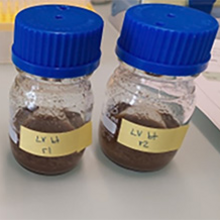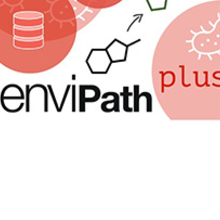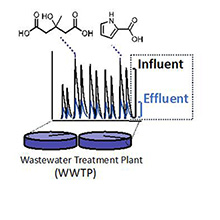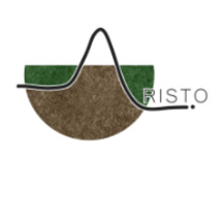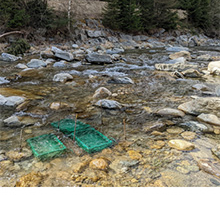Staff
Kathrin Fenner
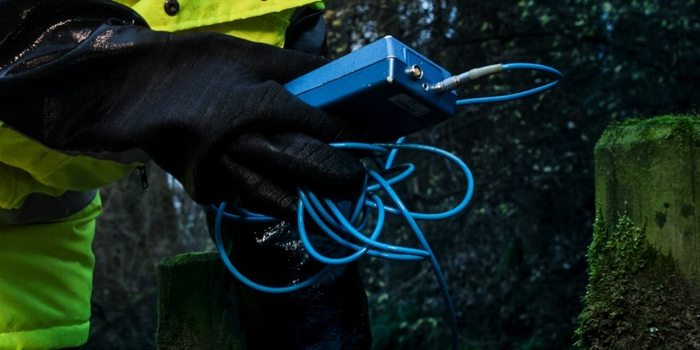

About Me
I am passionate about learning how chemicals degrade in the environment and whether any hazardous transformation products are formed during degradation. The ultimate goal of my research is to develop more accurate methods to assess persistence and risk from transformation product formation in regulatory risk assessment procedures. My research focuses on the following three areas in particular.
- Prediction of biodegradation pathways and rates
Current (Q)SBRs tools to predict biodegradation half-lives produce highly uncertain results and available pathway prediction tools suffer from combinatorial explosion due to a lack of methods to prioritize possible pathways. In my research, I mine biotransformation pathway and rate information to develop novel algorithms for biotransformation prediction. In parallel, my team performs bioreactor experiments with pertinent microbial communities and employ high-resolution mass spectrometry to identify transformation products to use that data to further improve biotransformation prediction - Hazard and risk assessment of transformation products
The goal of this aspect of my research is to develop models and indicators to predict and assess the environmental fate of transformation products. In collaboration with the team of Prof. B. Escher (UFZ Leipzig, Universität Tübingen) we are developing methods to estimate mixture toxicity of transformation products and their parent compound, using the strong structural resemblance to the parent compounds and what is known about parent toxicity as a guiding principle. - Improved tools for persistence assessment
- Persistence assessment is key to all chemical legislations in Europe. In my research, I try to contribute to a critical reflection of current persistence assessment paradigms and methods. For instance, I introduced the concept of joint persistence as novel persistence indicator that accounts for transformation product formation. Currently, I am also working on a project that evaluates the value of the OECD 308 guideline for evaluation of persistence of chemicals at the sediment-water interface.
[[ element.title ]]
Projects
[[ element.title ]]
Curriculum Vitae
| [[ entry.date || 'empty' ]] |
[[ element.title ]]
Publications
[[item.title]]
Chonova, T., Ruppe, S., Langlois, I., Griesshaber, D. S., Loos, M., Honti, M., … Singer, H. (2025). Unveiling industrial emissions in a large European river: insights from data mining of high-frequency measurements. Water Research, 268, 122745 (13 pp.). doi:10.1016/j.watres.2024.122745, Institutional Repository
Coll, C., Screpanti, C., Hafner, J., Zhang, K., & Fenner, K. (2025). Read-across of biotransformation potential between activated sludge and the terrestrial environment: toward making it practical and plausible. Environmental Science and Technology, 59(3), 1790-1800. doi:10.1021/acs.est.4c09306, Institutional Repository
Kalt, M., Udressy, C. I., Yu, Y., Colliquet, A., & Fenner, K. (2025). Preserving the biotransformation potential of activated sludge in time: toward reproducible incubation experiments for persistence assessment. Environmental Science and Technology, 59(9), 4597-4607. doi:10.1021/acs.est.4c08657, Institutional Repository
Meyer, C., McArdell, C. S., Fenner, K., Joss, A., & Hollender, J. (2025). Comparing the abatement of pharmaceuticals and their human metabolites in wastewater treatment plants – Insights from biological and advanced treatment stages. Water Research, 285, 123983 (15 pp.). doi:10.1016/j.watres.2025.123983, Institutional Repository
Zhang, K., Schwaller, P., & Fenner, K. (2025). Predicting toxicity toward nitrifiers by attention-enhanced graph neural networks and transfer learning from baseline toxicity. Environmental Science and Technology, 59(9), 4518-4529. doi:10.1021/acs.est.4c12247, Institutional Repository
Attrah, M., Schärer, M. R., Esposito, M., Gionchetta, G., Bürgmann, H., Lens, P. N. L., … Robinson, S. L. (2024). Disentangling abiotic and biotic effects of treated wastewater on stream biofilm resistomes enables the discovery of a new planctomycete beta-lactamase. Microbiome, 12, 164 (15 pp.). doi:10.1186/s40168-024-01879-w, Institutional Repository
Bosshard, J., Fenner, K., Singer, H., Anliker, S., & Gulde, R. (2024). Abwasser aus chemisch-pharmazeutischen Synthesebetrieben. Charakterisierung der Stoffeinträge in Gewässer. Aqua & Gas, 104(3), 43-49. , Institutional Repository
Hafner, J., Lorsbach, T., Schmidt, S., Brydon, L., Dost, K., Zhang, K., … Wicker, J. (2024). Advancements in biotransformation pathway prediction: enhancements, datasets, and novel functionalities in enviPath. Journal of Cheminformatics, 16(1), 93 (9 pp.). doi:10.1186/s13321-024-00881-6, Institutional Repository
Meynet, P., Joss, A., Davenport, R. J., & Fenner, K. (2024). Impact of long-term temperature shifts on activated sludge microbiome dynamics and micropollutant removal. Water Research, 258, 121790 (10 pp.). doi:10.1016/j.watres.2024.121790, Institutional Repository
Schittich, A. R., Fenner, K., Stedmon, C. A., Xu, J., McKnight, U. S., & Smets, B. F. (2024). Coupling pathway prediction and fluorescence spectroscopy to assess the impact of auxiliary substrates on micropollutant biodegradation. Environmental Microbiology, 26(2), e16560 (18 pp.). doi:10.1111/1462-2920.16560, Institutional Repository
[[ element.title ]]
[[ element.title ]]
Address
| E-Mail: | kathrin.fenner@cluttereawag.ch |
| Phone: | +41 58 765 5085 |
| Fax: | +41 58 765 5802 |
| Address: | Eawag
Überlandstrasse 133 8600 Dübendorf |
| Office: | BU F18 |
[[ element.title ]]
[[ element.title ]]
Expert on
biological degradation,
mass spectrometry,
micropollutants,
organic pollutants
[[ element.title ]]
Research Group
See my team page


